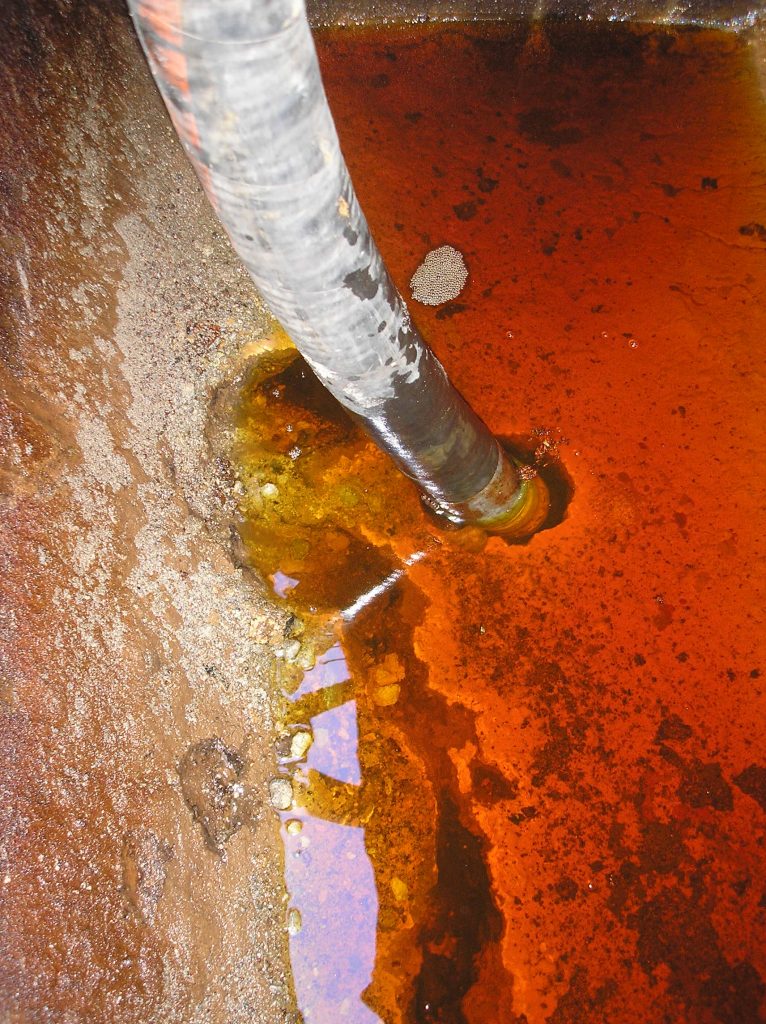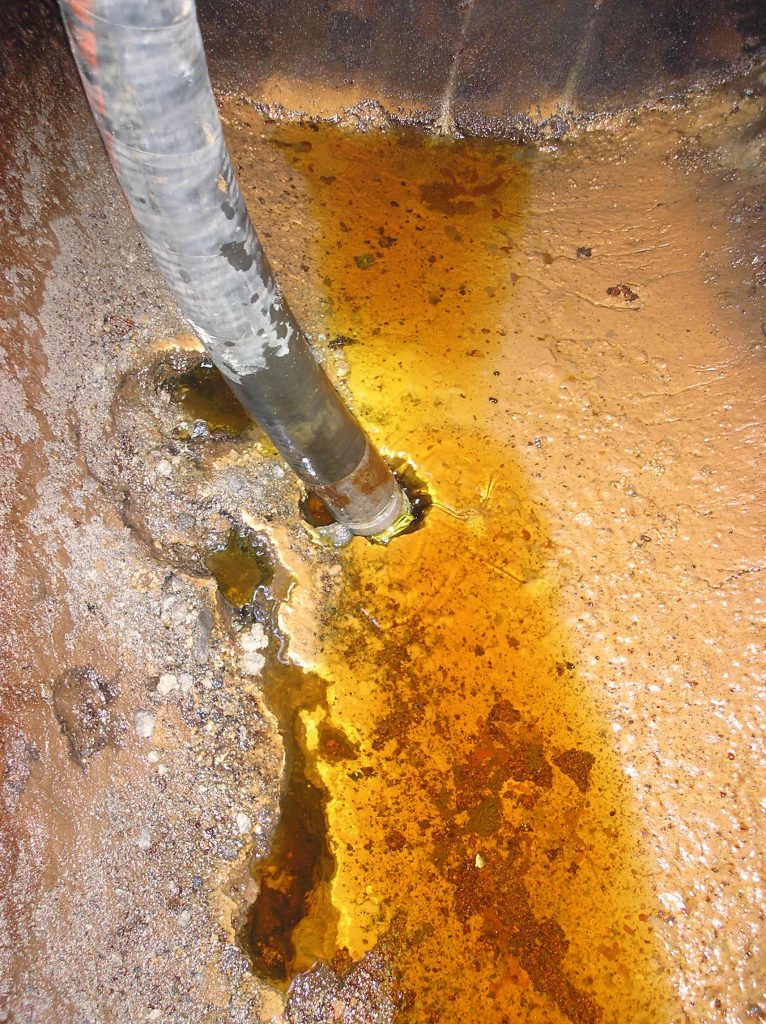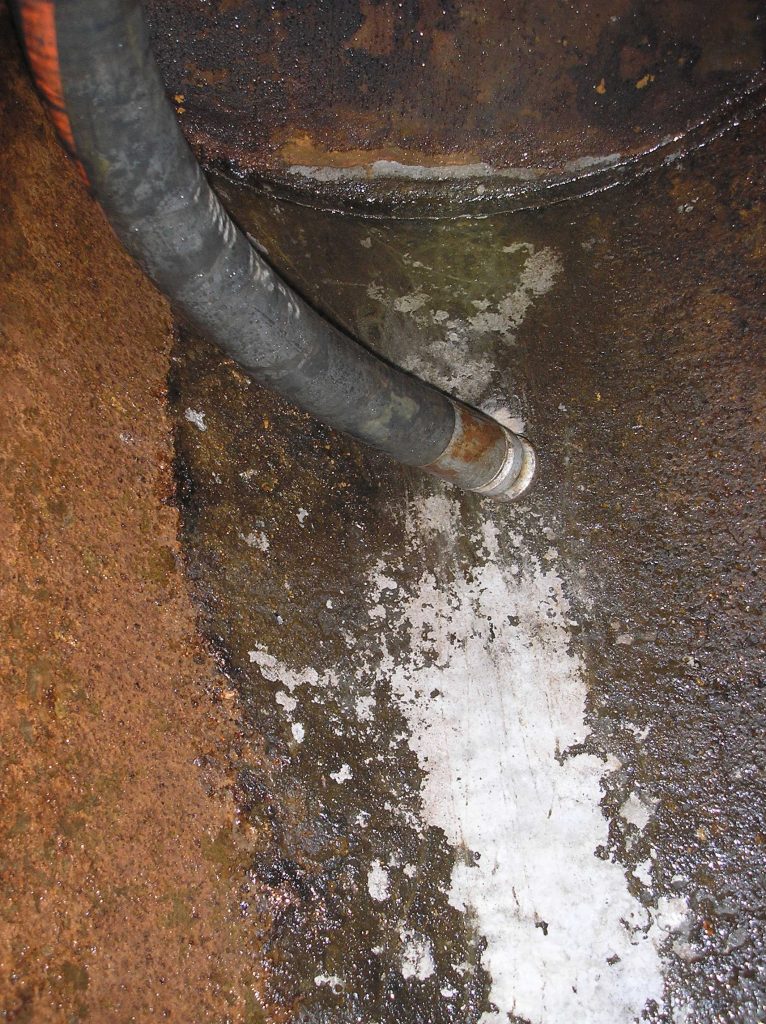Why is an oil tank a problem?
It is a LEAKING time bomb!
Because underground oil tanks are out of sight, most people don’t think much about the condition of the tank or the severity of contamination just a few feet underground.
If oil tanks were laying in the front yard where you could see the fuel oil spilling out, home owners would immediately call 911 for emergency hazmat response.
But since you can’t see your underground oil tank leaking, here are the top 8 reasons why you should be concerned about an oil tank at your property or at the property you’re buying.
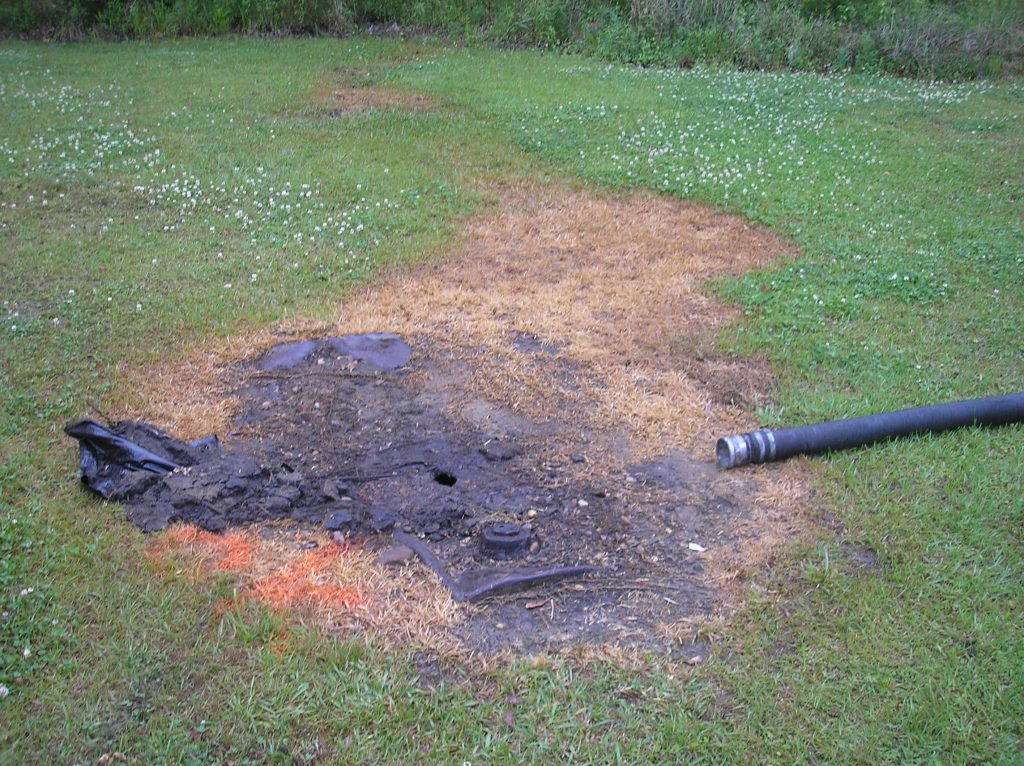
1) Leaking tanks are still located on thousands of residential properties.
Essential every house built from 1940 to 1970 has/had an oil tank. Houses built earlier than 1940 could have had an oil tank originally or may have been converted to oil heat later.
So beware! If your house was built before 1975, it probably used an underground oil tank. …And 90% of them have leaked.
2) Almost every oil tank still in the ground is leaking.
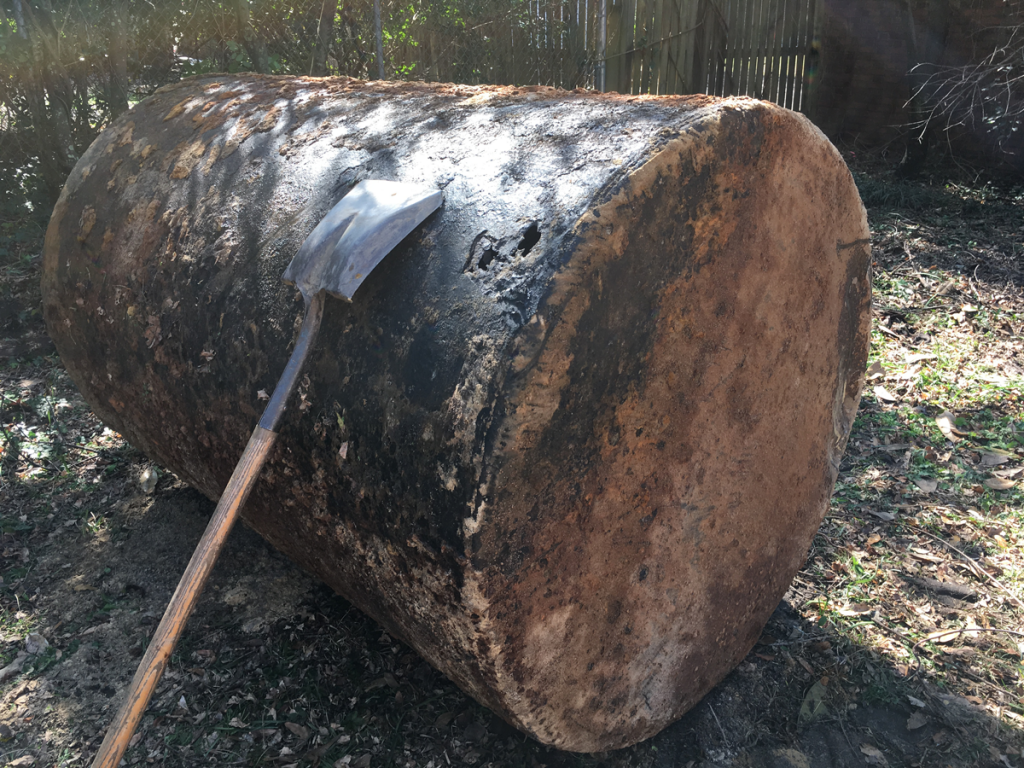
These thin-walled, bare steel tanks have been corroding underground for 50 to 80 years, far beyond their life expectancy. It’s true that a few tanks are thicker than others, but at 60+ years old, even the thicker tanks usually have large holes and have contaminated soil and possibly groundwater.
Tanks will continue to leak until they are cut open, washed out, and pumped empty.
After decades of use, several inches of petroleum sludge accumulates on the bottom and sides of the tank. Even if the dip stick shows very little or no fuel oil, these tanks are far from empty. (Typically sludge does not accumulate directly under the fill pipe because each delivery pushes back the sludge from this spot.)
Old tanks are like coffee makers: After sufficient tank corrosion, rainwater percolates into the top of the tank. After the water has soaked in the tank sludge, it becomes contaminated and then leaks out of the tank. This causes the soil and groundwater contamination to grow. In this analogy, the tank is the coffee filter, the rainwater is the coffee maker water, the sludge is the coffee grounds and the leaking contaminated water is the coffee.
3) It may be hard to sell your contaminated property until the tank and/or the contamination are adequately addressed.
Because a “repair/upgrade” has been made, a cleaned-up property is worth thousands of dollars more than a property where there hasn’t been a documented tank removal (and a cleanup if necessary).
Request a Tank Evaluation. If your tank has leaked, we will provide you with several options to address the contamination including costs for each option.
Currently, the State is not enforcing the statue and regulation cleanup requirements.
However, this could change at any time. Mandatory contamination cleanup was required from 1988 until 2015. Failing to enforce cleanup rules on heating oil tanks is completely inconsistent with currently enforced cleanup requirements for aboveground oil tank leaks, surface petroleum spills, and commercial underground tank leaks.
4) The contamination at any given property could be “minor” or there could be a serious environmental problem.
More than 6 feet of fuel has been measured floating on the water table under a small 270 gallon residential oil tank in southeastern North Carolina. This can be cleaned up, but can you imagine buying this problem unknowingly?
Request a Tank Evaluation to determine if the tank has leaked or not.
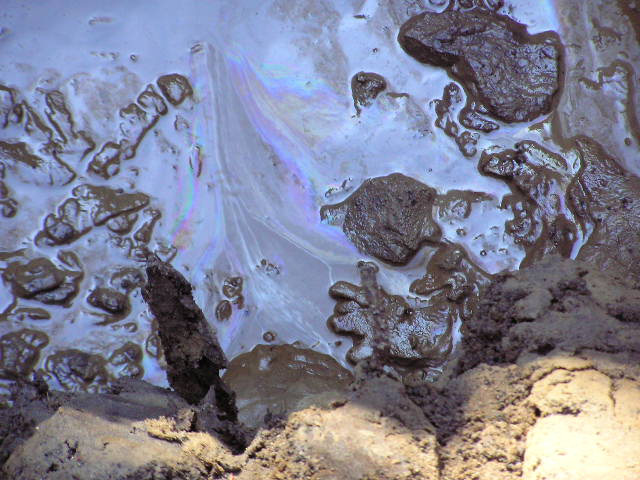
5) Property owners are legally liable for the tank and contamination.
Whether they used the tank or not…whether they know a tank was there or not.
Essentially, North Carolina and Federal Statutes and regulations define any property owner, past or present, to be responsible for the tank and the contamination. As the contamination grows and spreads onto neighboring properties, the liability grows as well, for everyone who has ever owned the property.
A seller’s responsibility for the tank and contamination does not end simply by selling the property.
Estate Executors are required to complete and fulfill all of the estate’s responsibilities before the house is sold and the estate closed. This includes legal responsibilities for the tank and contamination. Failing to conduct required actions before you sell the house could become a legal problem for the individual executor, not just the estate generally.
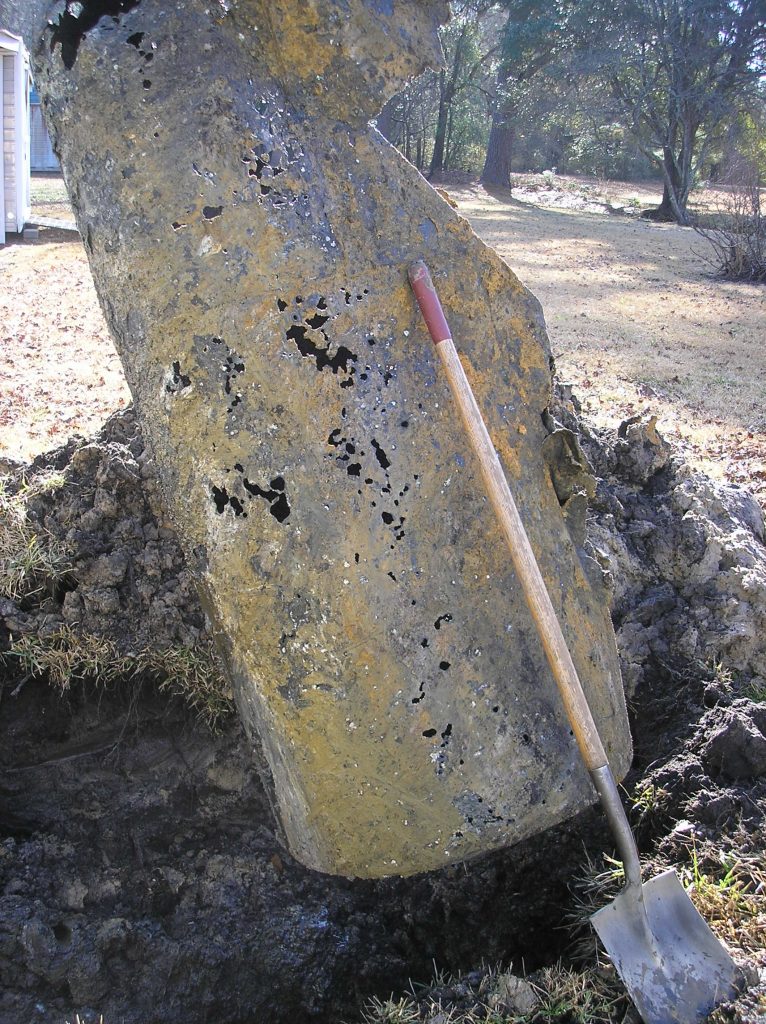
6) Leaked fuel oil will contaminate groundwater which is always moving off your property.
Your contaminated groundwater will to move onto neighboring properties, eventually contaminating nearby (irrigation) wells, underground utilities, storm drains, and/or surface water drainage ways.
Furthermore, State of North Caroling claims ownership of the groundwater under your property. They can start enforcing the groundwater standards again at any time with the stroke of a pen.
7) Some fuel oil constituents are known to cause cancer and other health problems.
Endangering public health by allowing these hazardous constituents to contaminate a neighbor’s irrigation well, basement, or storm drain, it could become a big and expensive problem for you.
Even a partial contamination cleanup can help prevent impacts to your neighbors and help avoid law suits.
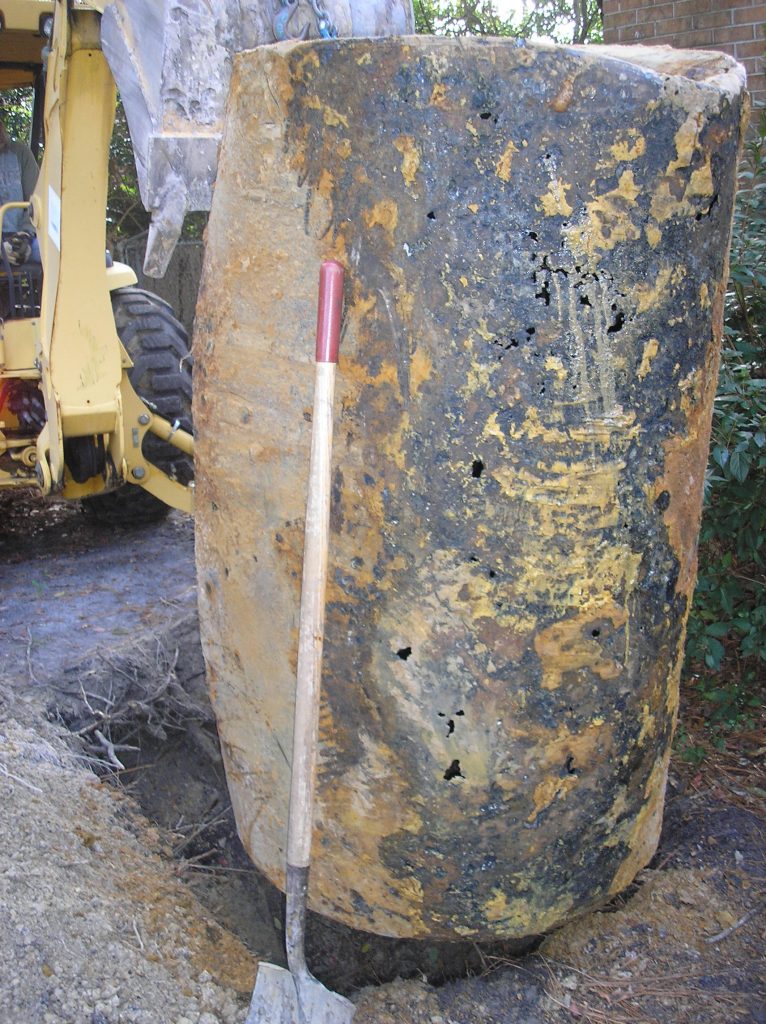
8) Adjacent property owners may sue for damages caused by your leaking tank.
You may be friends with your neighbor now, but when your leaking oil tank contaminates their property, impacts their health, or ruins their irrigation well, they may cause you lots of problems.
If there are discovered impacts, the State’s UST Section may force you to remediate your spreading contamination plume to protect public health. There are some expensive horror stories on the internet.
Because of the State claimed ownership of the groundwater under your property, the State can require a contamination cleanup anytime that they see fit. Maybe not now, but maybe later. Cleaning up sooner is less expensive than cleaning up later.
Request Practical Environmental Solutions to conduct a Tank Evaluation.
You don’t benefit by ignoring the tank.
The sooner it’s addressed the better your results.
If your tank hasn’t leaked yet, now is the best time to remove it, before it leaks. Document the “clean” tank closure properly and the oil tank concern is eliminated.
If your tank has leaked, the sooner it’s removed the better. Over time, your leaking contamination will continue to spread by moving across your property and onto neighbor’s property.
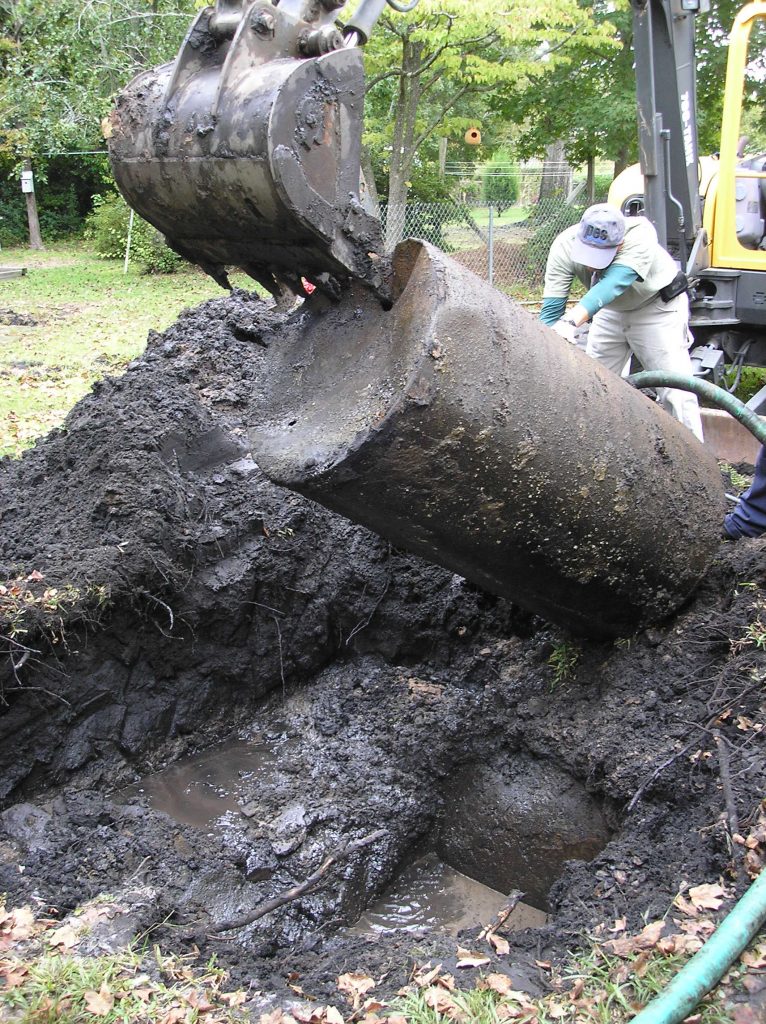
Remember:
Contamination does not significantly degrade below the tank and is always migrating on to neighboring properties to impact irrigation wells, underground sewers and utilities, basements, surface water, etc.
Buyers: don’t buy an older property, until the tank is properly removed and checked for contamination.
Owners (sellers): conduct a proper tank removal and appropriate cleanup before the problem grows bigger and the government forces you to conduct a cleanup on their terms.
Practical Environmental Solutions has removed hundreds of oil tanks mostly in southeastern North Carolina since 2001, removing new tanks every month. We are experienced, licensed, insured, and offer turnkey solutions for your oil tank situation.
